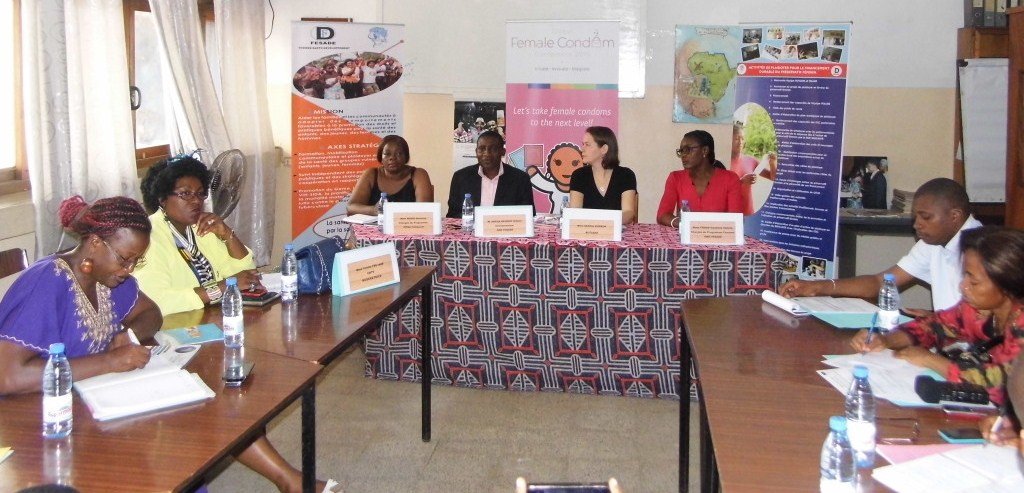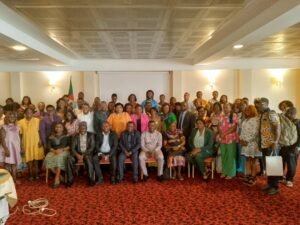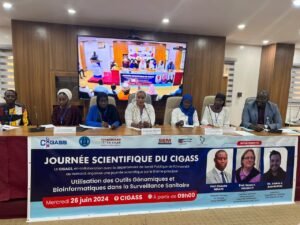 A press briefing to highlight the long standing activities of Rutgers and Fesade in Cameroon with regard to the female condom took place in Yaounde, the nation’s capital on Wednesday March 30, 2016.
A press briefing to highlight the long standing activities of Rutgers and Fesade in Cameroon with regard to the female condom took place in Yaounde, the nation’s capital on Wednesday March 30, 2016.
The NGO Women-Health-Development, otherwise known in French as Femmes-Santé-Développement (FESADE) alongside its partner Rutgers, an international NGO based in the Netherlands met with the Network of Journalists for Health and Development (NEJHED) in Yaounde. The press briefing focused on the vulgarization of numerous activities undertaken so far by the platform of civil society organizations and media practitioners on the mechanisms of the Global Financial Facility (GFF).
Opening the exchange with journalists, Urbain Abega, Coordinator of FESADE said the GFF initiative in support of the programme “Every Woman, Every child” is based on three main financing strategies which are smart, scaled and sustainable or longer term financing. It is an important initiative which will help to save lives as Cameroon has passed from 430 to 782 maternal deaths since 2011. He said GFF is a financing that will come to resolve the problems of equity, there will be a fair redistribution in regions mostly affected by family planning issues. Cameroon has been eligible to the GFF and hopes to mobilize about 75 Billion FCFA per year within three years. Reassurances on the efforts that will grant the GFF were explained further by Mr Abega who emphasized on government’s measures to succeed implementing its health policy. A follow up committee on the initiative has been set up by government and regroups partners from the civil society organizations he added.
Another high point at this press briefing was the role of the civil society in the advocacy process for female condom. Presented by Suzanne Ngnie of SWAA-Cameroon, the focus was to highlight how civil society organizations have to mobilize and sensitize populations targeted in the use of female condoms. She said the civil society is continuously working to impact on mentalities in order to make female condom inscribed in people’s habits. Suzanne Ngnie equally ceased the opportunity to call for persistent communication on the female condom notably in areas where there is high need for dialogue. On her part, Valérie Gystiane Tsemo, in charge of the Women’s programme in FESADE said sensitizations and advocacy activities undertaken over the past four months with regard to the launch of the GFF initiative, need the mobilization of all actors of the platform and most of all of NEJHED, which plays a key role in communicating on female condom since 2013.
Saskia Hüsken, Advocacy officer in Rutgers, on duty in Cameroon expressed herself on the importance of pursuing a dialogue with government in line with the female condom. Advocacy activities instilled between NGOs and government are more of dialogue on products oriented like the female condom and for solutions for the well being of populations. On the question to know: How does Rutgers intends to further accompany both materially and financially NGOs like FESADE in order to foster their communication and advocacy strategies? Saskia said Rutgers continuously pursues its dialogue. Funding to kick start the project has been raised by some partners, there are current supports arising from some five countries and prospects are yet to be discussed.
The female condom is one of the thirteen vital products to be positioned in the national strategies for Reproductive, Maternal, Newborn, Child and Adolescent Health (RMNCAH) within 2015 to 2030. Rutgers, FESADE together with civil society organizations and media are more engaged to sensitize populations on their welfare as matter of breaching the gap and positively impacting on health development of the country.
By Elise Kenimbeni





